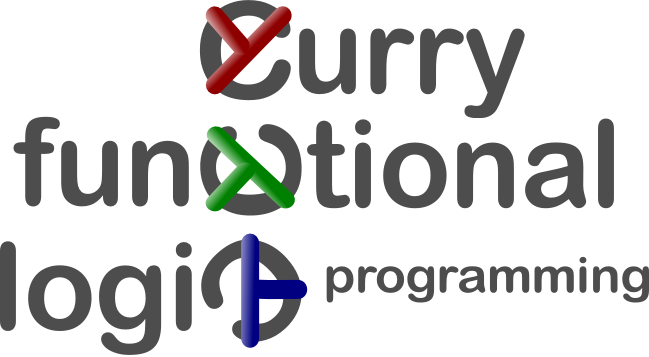A Truly Integrated Functional Logic Language
Curry is a universal programming language aiming to amalgamate the most important declarative programming paradigms, namely functional programming and logic programming. Moreover, it also covers the most important operational principles developed in the area of integrated functional logic languages: “residuation” and “narrowing”. There is an older survey and a newer survey on functional logic programming. There is also a short review on functional logic programming which provides a good introduction into the basic ideas and features of functional logic programming and Curry.
Curry combines in a seamless way features from functional programming (nested expressions, higher-order functions, lazy evaluation), logic programming (logical variables, partial data structures, built-in search), and concurrent programming (concurrent evaluation of expressions with synchronization on logical variables). Moreover, Curry provides additional features in comparison to the pure languages (compared to functional programming: search, computing with partial information; compared to logic programming: more efficient evaluation due to the deterministic and demand-driven evaluation of functions).
The development of Curry is an international initiative intended to provide a common platform for the research, teaching and application of integrated functional logic languages. The design of Curry is mainly discussed in the Curry mailing list. A detailed report describing the language is available. To get an idea of Curry, you may have a look into the short list of Curry's features or a tutorial on Curry.
This is the main page of the Curry Wiki with collected information about Curry.
If you want to contribute something, please write to www_AT_curry-lang.org.
There is also the homepage of Curry
intended as a general entry point.

